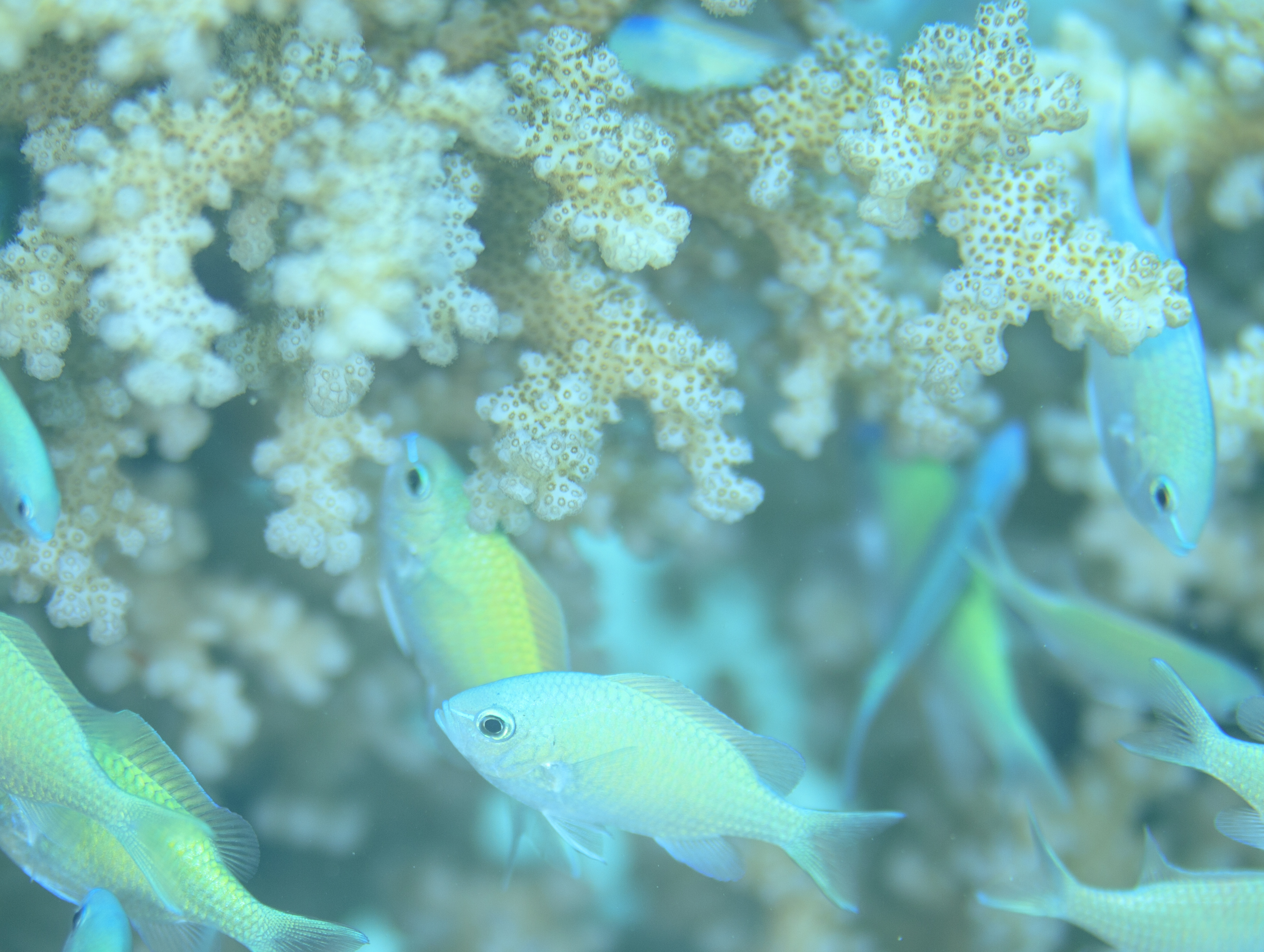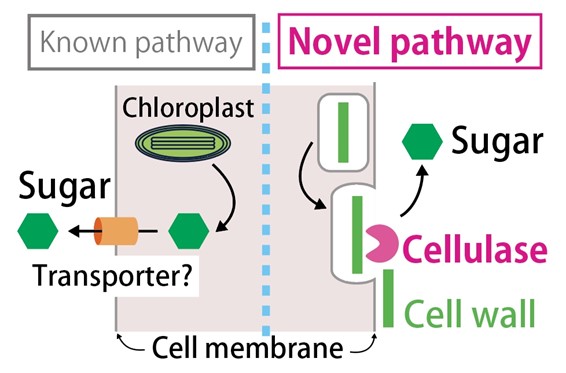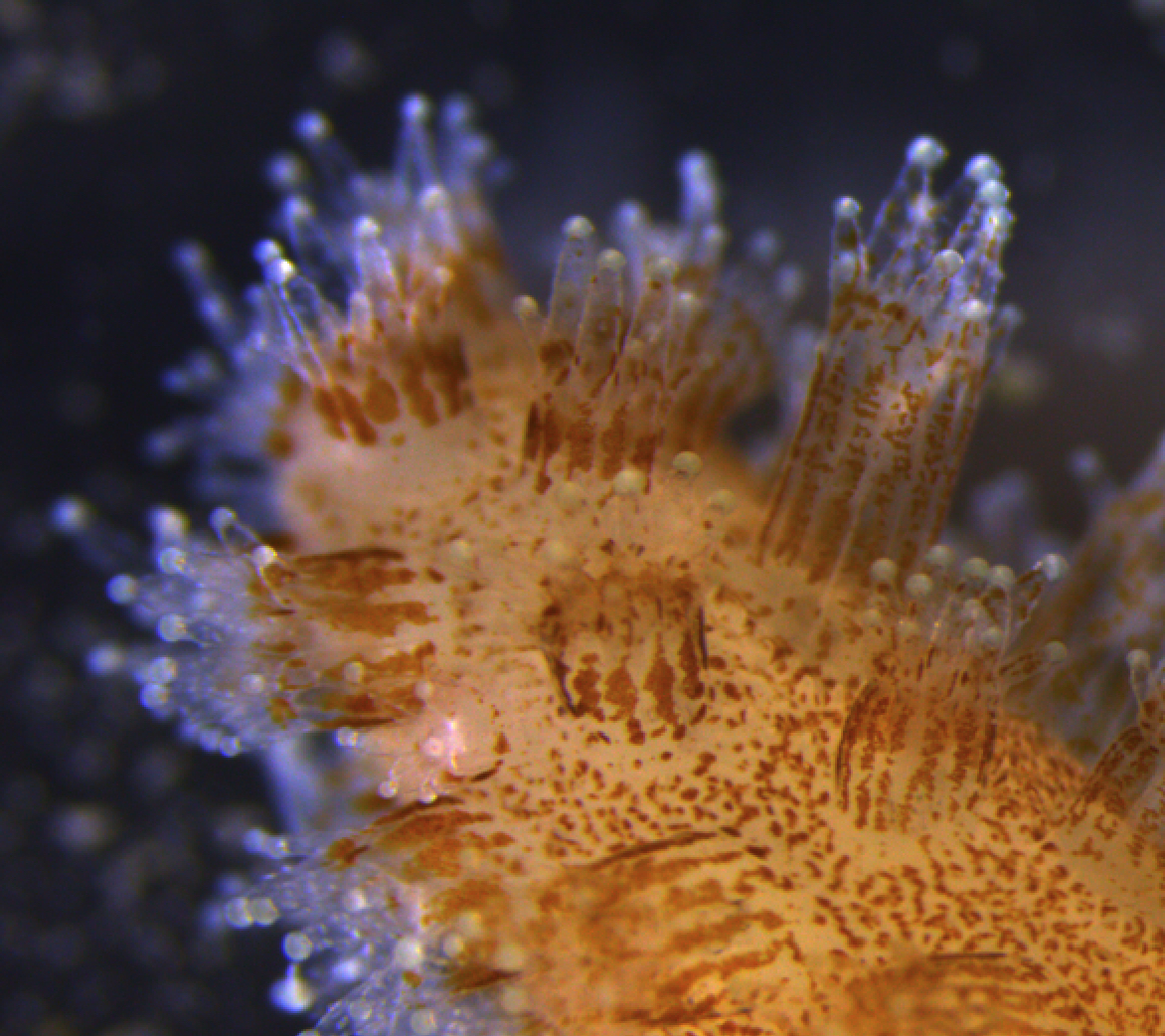Researchers have identified a new pathway by which sugar is released by symbiotic algae. This pathway involves the largely overlooked cell wall, showing that this structure not only protects the cell but plays an important role in symbiosis and carbon circulation in the ocean.
The findings were reported in the journal eLife on August 18, 2023.
It is widely known that microalgae enjoy a symbiotic relationship with cnidarians such as corals and sea anemones. The algae use the sun light to produce sugars and other carbohydrates and pass them on to the coral. In return, the coral provides nutrients and shelter to the algae. This fertile coral reefs form in the nutrient-poor tropical oceans and partially addresses the Darwin paradox.
Yet this symbiotic relationship is both delicate and complex; the slightest change in temperature, pollution or water chemistry can have adverse impacts, leading to coral bleaching or other negative effects on the ecosystem. Scientist still do not understand many of the intricate processes at play when it comes to this relationship, but doing so is crucial for the preservation of coral reefs and the biodiversity they support.
“We discovered that the release of sugar occurs when the algal cell begins degrading its own cell wall,” explains Shinichiro Maruyama, lead-author of the research and an associate professor at the University of Tokyo’s Graduate School of Frontier Sciences. “This breakdown of the cell wall happens even when a symbiotic host is absent and gets enhanced when conditions become more acidic.”
Symbiotic algae live in special compartments within coral cells - symbiosomes - or the guts of marine animals. These environments are generally acidic, and the researchers interpret the sugar release as the algal response to environmental changes in nature.
The researchers also found the sugar release is mediated by the enzyme cellulase, which is known for its usage in breaking down the cell walls in land plants. When the alga gets treated with a cellulase inhibitor, the amount of sugar released outside of the cell decreases, indicating that the degradation of sugar chains by cellulase is directly related to the increase in sugar release in acidic conditions.
“Our findings suggest that the algal-coral interaction is more complex than ever thought, providing an important piece of the jigsaw puzzle when it comes to carbon cycling in marine environments,” adds Maruyama.
For their next steps, Maruyama and his team will begin clarifying the molecular mechanisms of sugar release, cell wall maintenance, and regulation of enzymatic reactions. Already, they have embarked on a project to disclose the whole diversity of molecules secreted from symbiotic algae, which will further provide insights into what kind of ‘molecular language’ is exchanged between symbionts and hosts.

Coral reef ecosystem supported by symbiosis with microalgae

A model of the pathways of sugar secretion from coral symbiotic algae

Pocillopora coral in symbiosis with microalgae
Publication Details
Title:Environmental pH signals the release of monosaccharides from cell wall in coral symbiotic alga
Authors: Yuu Ishii, Hironori Ishii, Takeshi Kuroha, Ryusuke Yokoyama, Ryusaku Deguchi, Kazuhiko Nishitani, Jun Minagawa, Masakado Kawata, Shunichi Takahashi, Shinichiro Maruyama*
Journal: eLife
DOI: https://doi.org/10.7554/eLife.80628
Authors: Yuu Ishii, Hironori Ishii, Takeshi Kuroha, Ryusuke Yokoyama, Ryusaku Deguchi, Kazuhiko Nishitani, Jun Minagawa, Masakado Kawata, Shunichi Takahashi, Shinichiro Maruyama*
Journal: eLife
DOI: https://doi.org/10.7554/eLife.80628
Link
Contact
Name: Shinichiro Maruyama
Affiliation: Laboratory of Integrated Biology
Department of Integrated Biosciences
Graduate School of Frontier Sciences
The University of Tokyo
Email: shinichiro.maruyama@k.u-tokyo.ac.jp
Website: https://www.ib.k.u-tokyo.ac.jp/english/faculty/integrated_biology/
Affiliation: Laboratory of Integrated Biology
Department of Integrated Biosciences
Graduate School of Frontier Sciences
The University of Tokyo
Email: shinichiro.maruyama@k.u-tokyo.ac.jp
Website: https://www.ib.k.u-tokyo.ac.jp/english/faculty/integrated_biology/

